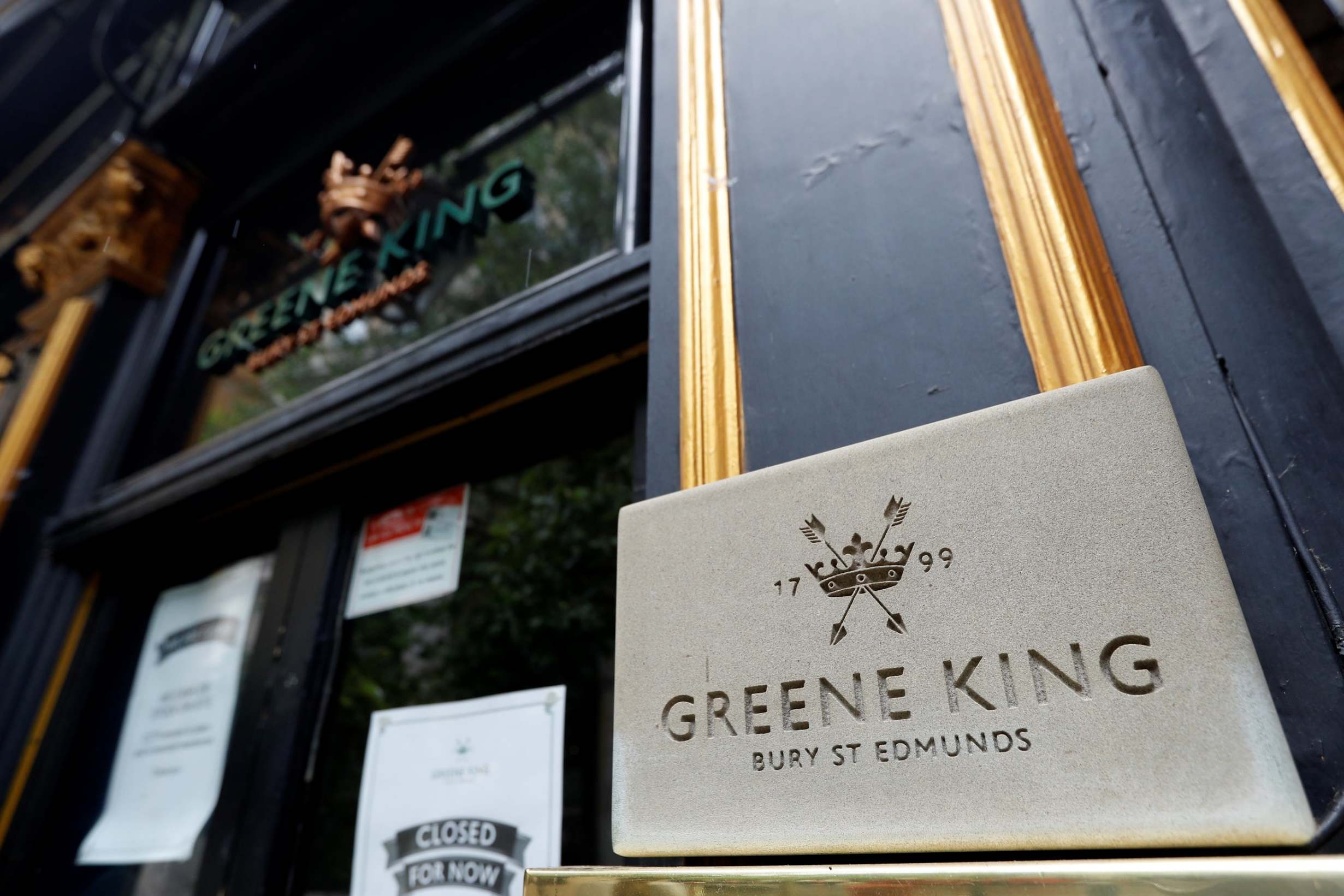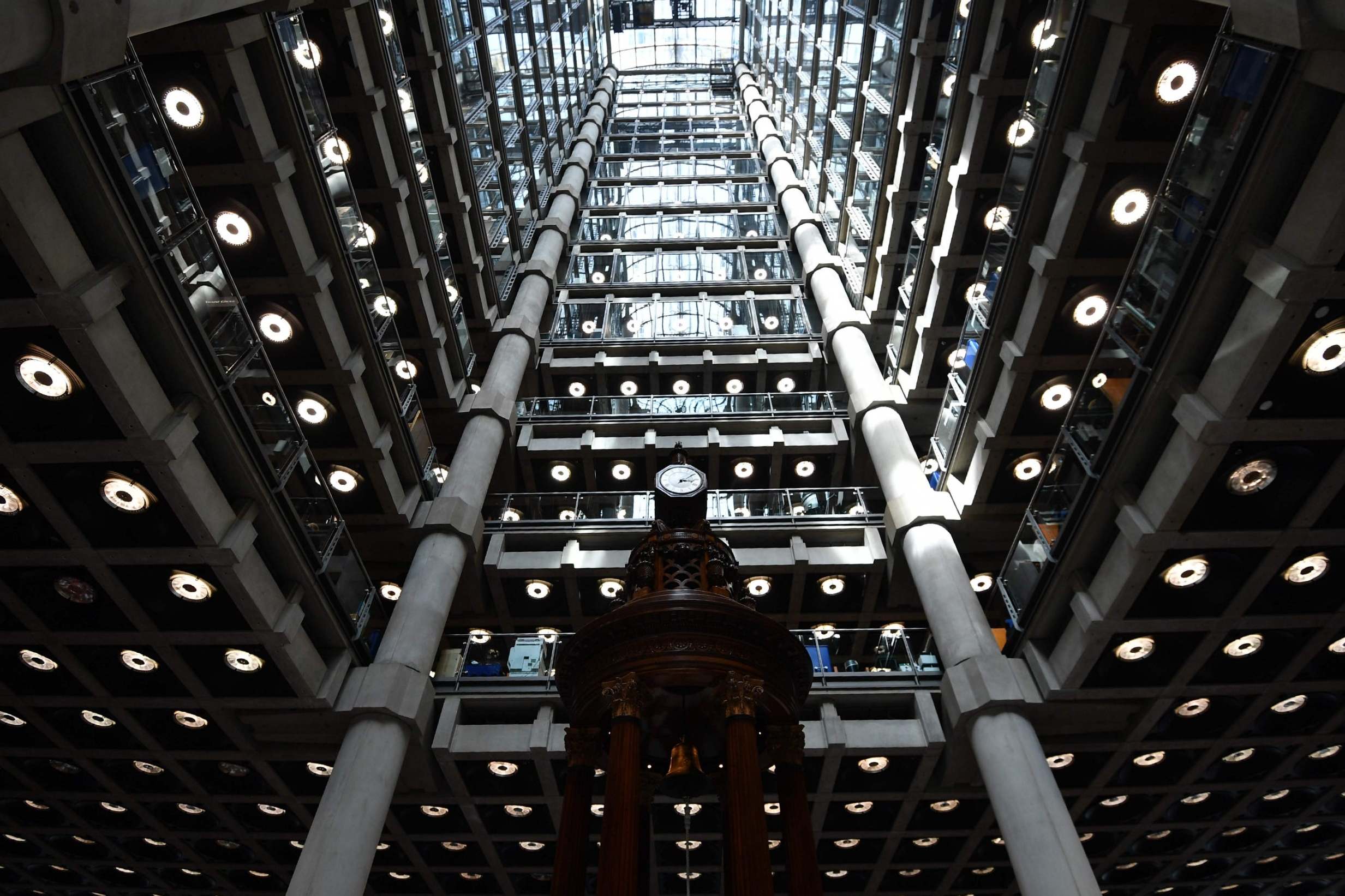Donations or reparations? Lloyd’s of London and Greene King address their uncomfortable histories
Apologies have been forthcoming, as have promises of donations, which raises an interesting question, writes James Moore


I was given a tour around Lloyd’s of London in my early days covering the insurance industry for another national newspaper.
I was shown the famous Lutine Bell, life insurance policies issued to members of The Beatles and various other curios. The place was steeped in history, as you might expect given its 17th-century origins in a London coffee house, and I was fascinated.
What I was not shown, of course, was anything to do with the market’s role in insuring the ships which hauled African slaves across the Atlantic via the brutal “Middle Passage”.
We’ve been hearing a lot about how tearing down statues glorifying some fairly rotten people would “paper over history”.
That’s a remarkably weak argument for leaving them standing, because Britain has spent years deliberately papering over some of the uncomfortable and ignoble parts of its history.
The killing of George Floyd in the US, and the global protests that followed, have forced a reckoning. Many British, as well as American, institutions are now confronting aspects of their histories they’d probably rather were forgotten about. That includes parts of the business world.
It isn’t just Lloyd’s of London, either. One of Greene King’s founders had plantations in the Caribbean and if you do a little reading about what went on in that part of the world, and you have a grain of empathy, you’ll shudder, just as you’ll shudder at the reality of the Middle Passage.
Then there are racially insensitive US-owned brands like “Aunt Jemima’s” maple syrup and foods, and “Uncle Ben’s” rice, which is better known on this side of the Atlantic. Change is, we are told, coming to them too, and about time.
But there’s more. Lloyd’s and Greene King and Pepsi, the ultimate owner of Aunt Jemima’s, have also promised donations to Bame groups.
Donation rhymes with reparation. And reparations for the slave trade have long been the subject of a debate that has only rarely penetrated into mass consciousness. Of late that’s changing.
One of the oft-discussed problems with reparations for slavery is that it’s complicated. Reparations are nearly always complicated.
There’s the question of who gets the money and how. How do you best assist the descendants of your victims who are still suffering from the impact of systemic racism?
If you’re not careful you can tie yourself up in knots discussing these issues.

The trouble with the “complicated” debates that have been thrown up when the question of reparations is raised is that it’s often used as an excuse for not doing anything at all.
If you want a lived example of how this works, of looking away when things are complicated, consider what happened to Colin Kaepernick, the NFL quarterback who kicked off the debate about racial injustice four years before the killing of George Floyd took it global, by kneeling when the US national anthem was playing before NFL games.
Ever since his contract with the San Francisco 49ers ended, sports journalists have been talking about how “complicated” signing him would be, which has served as a handy excuse for not signing him. Even now, the same word is still being used, and, of course, he’s still unsigned.
Well the various companies mentioned have done their signings, with cheques. This moves the debate about reparations on, even though the cheques are being characterised as donations.
A principle is being established.
That means it should be possible to talk about extending it, as well as to raise questions about how much they’re giving and whether it’s enough (clue: it almost certainly isn’t), to talk about where the money’s going, and who’s in charge of allocating it.
Some of these discussions are going to be complicated, but that’s fine.
And Lloyd’s? Lloyd’s syndicates? Greene King? Pepsi? Mars (the owner of Uncle Ben’s)?
You realise that now you have got the ball rolling, whether out of sincere conviction or with PR in mind, you’re going to be asked to do more than you have to date? Best prepare yourself.
The process of reconciliation would certainly be assisted through working with your HR departments on the subject of diversity and hiring while you’re at it. To be fair, there have been promises to do that.
But talk is cheap.
Join our commenting forum
Join thought-provoking conversations, follow other Independent readers and see their replies
Comments